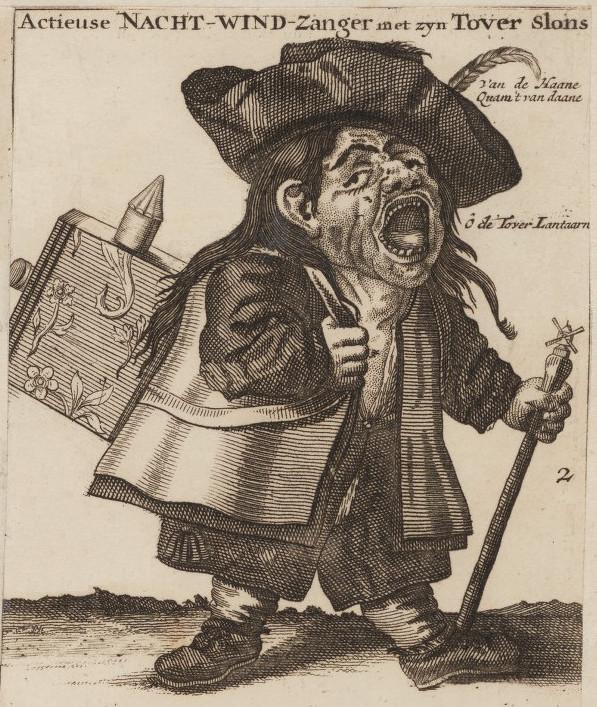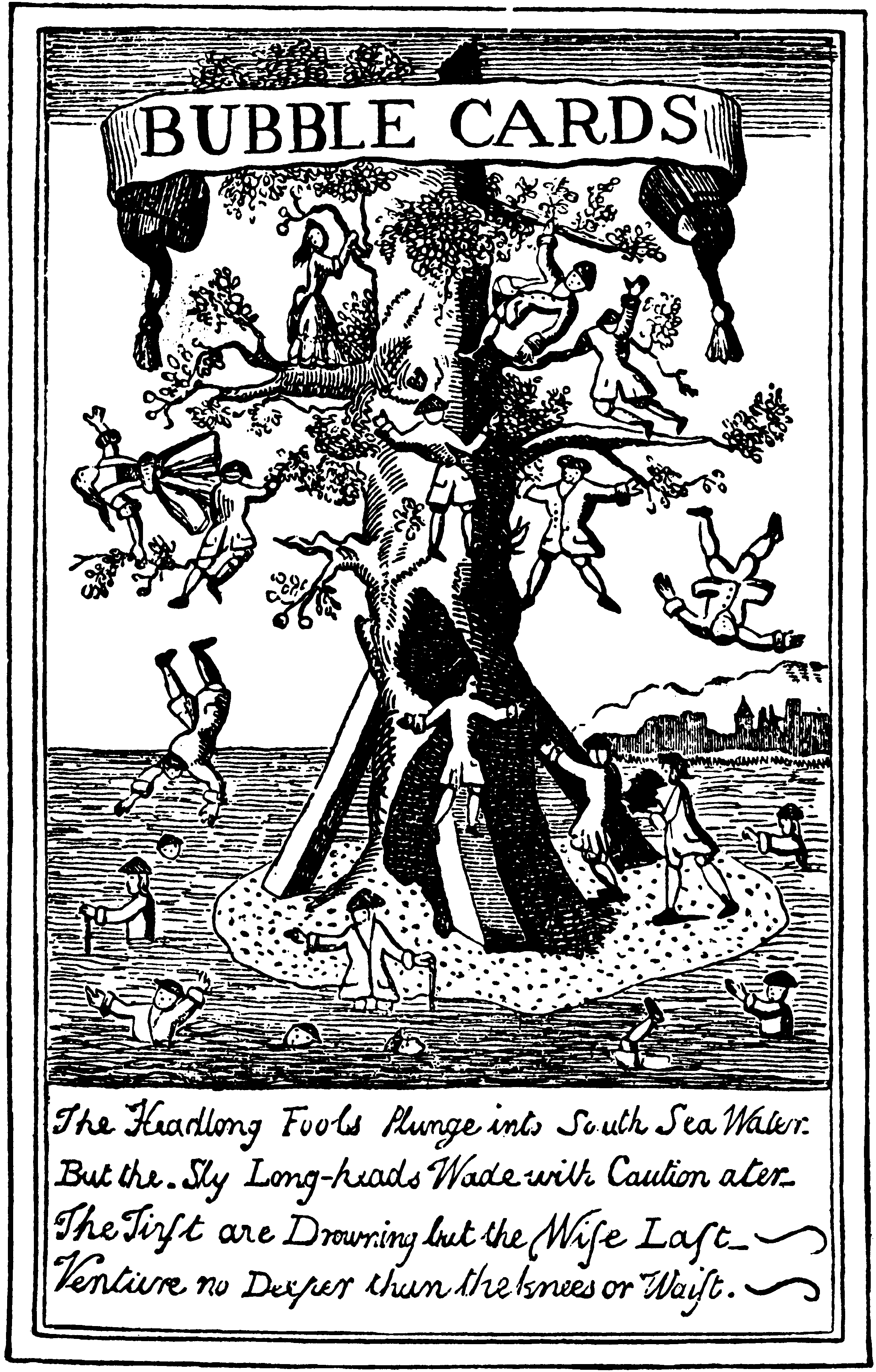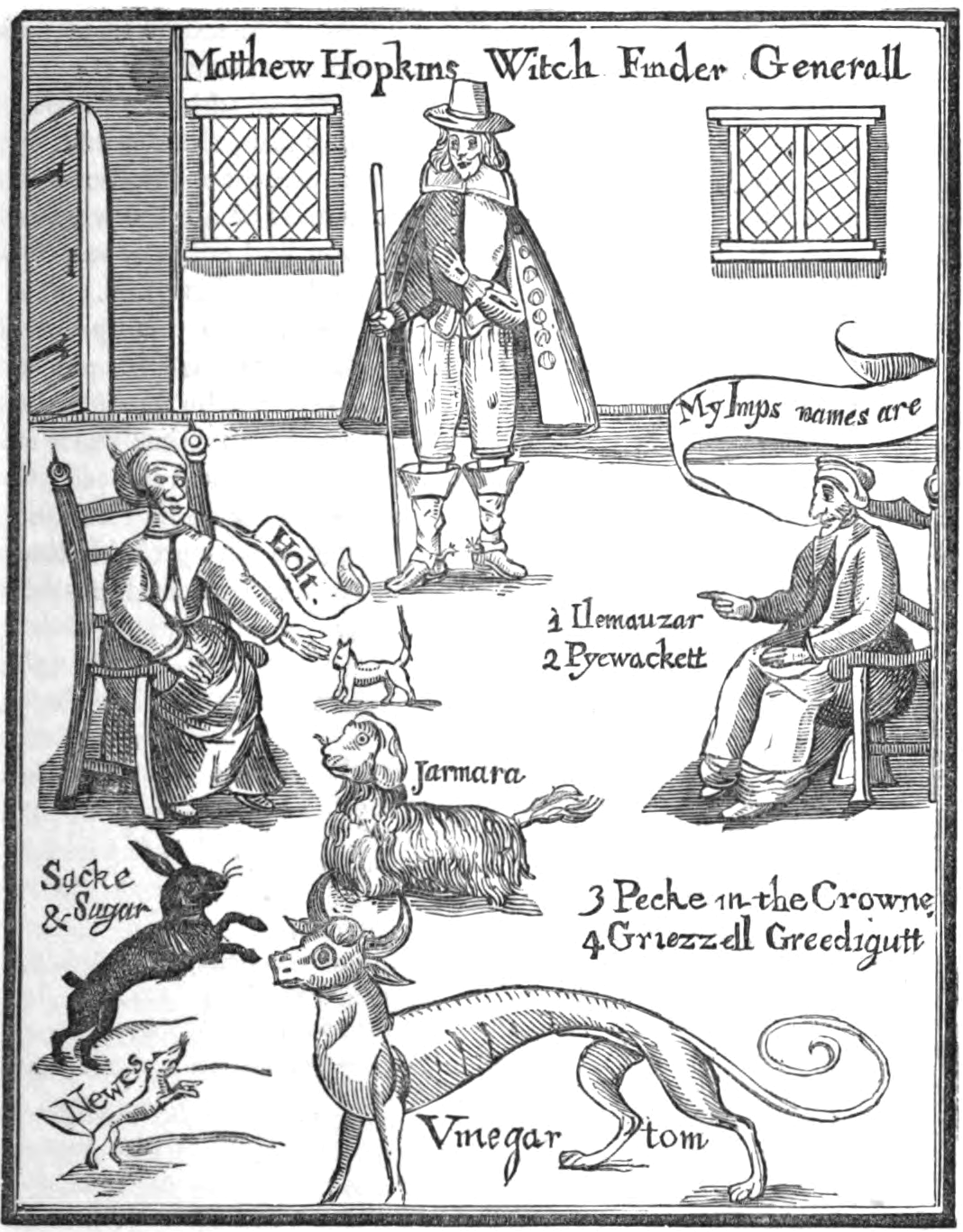Extraordinary Popular Delusions and the Madness of Crowds on:
[Wikipedia]
[Google]
[Amazon]

 ''Extraordinary Popular Delusions and the Madness of Crowds'' is an early study of
''Extraordinary Popular Delusions and the Madness of Crowds'' is an early study of



 ''Extraordinary Popular Delusions and the Madness of Crowds'' is an early study of
''Extraordinary Popular Delusions and the Madness of Crowds'' is an early study of crowd psychology
Crowd psychology (or mob psychology) is a subfield of social psychology which examines how the psychology of a group of people differs from the psychology of any one person within the group. The study of crowd psychology looks into the actions ...
by Scottish journalist Charles Mackay, first published in 1841 under the title ''Memoirs of Extraordinary Popular Delusions''. The book was published in three volumes: "National Delusions", "Peculiar Follies", and "Philosophical Delusions". A second edition appeared in 1852, reorganizing the three volumes into two and adding numerous engravings. Mackay was an accomplished teller of stories, though he wrote in a journalistic and somewhat sensational style.
The subjects of Mackay's debunking include alchemy
Alchemy (from the Arabic word , ) is an ancient branch of natural philosophy, a philosophical and protoscientific tradition that was historically practised in China, India, the Muslim world, and Europe. In its Western form, alchemy is first ...
, crusades
The Crusades were a series of religious wars initiated, supported, and at times directed by the Papacy during the Middle Ages. The most prominent of these were the campaigns to the Holy Land aimed at reclaiming Jerusalem and its surrounding t ...
, duels, economic bubble
An economy is an area of the Production (economics), production, Distribution (economics), distribution and trade, as well as Consumption (economics), consumption of Goods (economics), goods and Service (economics), services. In general, it is ...
s, fortune-telling
Fortune telling is the spiritual practice of predicting information about a person's life. Melton, J. Gordon. (2008). ''The Encyclopedia of Religious Phenomena''. Visible Ink Press. pp. 115–116. The scope of fortune telling is in principle ...
, haunted houses, the Drummer of Tedworth, the influence of politics and religion on the shapes of beard
A beard is the hair that grows on the jaw, chin, upper lip, lower lip, cheeks, and neck of humans and some non-human animals. In humans, beards are most commonly seen on pubescent or adult males, though women have been observed with beards ...
s and hair
Hair is a protein filament that grows from follicles found in the dermis. Hair is one of the defining characteristics of mammals.
The human body, apart from areas of glabrous skin, is covered in follicles which produce thick terminal and ...
, magnetisers (influence of imagination in curing disease), murder through poison
A poison is any chemical substance that is harmful or lethal to living organisms. The term is used in a wide range of scientific fields and industries, where it is often specifically defined. It may also be applied colloquially or figurati ...
ing, prophecies, popular admiration of great thieves, popular follies of great cities, and relic
In religion, a relic is an object or article of religious significance from the past. It usually consists of the physical remains or personal effects of a saint or other person preserved for the purpose of veneration as a tangible memorial. Reli ...
s. Present-day writers on economics, such as Michael Lewis and Andrew Tobias, laud the three chapters on economic bubbles.
In later editions, Mackay added a footnote referencing the Railway Mania
Railway Mania was a stock market bubble in the rail transportation industry of the United Kingdom of Great Britain and Ireland in the 1840s. It followed a common pattern: as the price of railway shares increased, speculators invested more mon ...
of the 1840s as another "popular delusion" which was at least as important as the South Sea Bubble
South is one of the cardinal directions or compass points. The direction is the opposite of north and is perpendicular to both west and east.
Etymology
The word ''south'' comes from Old English ''sūþ'', from earlier Proto-Germanic ''*sunþa ...
. In the 21st century, the mathematician Andrew Odlyzko pointed out, in a published lecture, that Mackay himself played a role in this economic bubble; as a leader writer in '' The Glasgow Argus'', Mackay wrote on 2 October 1845: "There is no reason whatever to fear a crash".
Volume I: National Delusions
Economic bubbles
The first volume begins with a discussion of threeeconomic bubble
An economy is an area of the Production (economics), production, Distribution (economics), distribution and trade, as well as Consumption (economics), consumption of Goods (economics), goods and Service (economics), services. In general, it is ...
s, or financial manias: the South Sea Company bubble of 1711–1720, the Mississippi Company
John Law's Company, founded in 1717 by Scottish economist and financier John Law (economist), John Law, was a joint-stock company that occupies a unique place in French and European monetary history, as it was for a brief moment granted the enti ...
bubble of 1719–1720, and the Dutch tulip mania
Tulip mania () was a period during the Dutch Golden Age when contract prices for some bulbs of the recently introduced and fashionable tulip reached extraordinarily high levels. The major acceleration started in 1634 and then dramatically co ...
of the early seventeenth century. According to Mackay, during this bubble, speculators from all walks of life bought and sold tulip
Tulips are spring-blooming perennial herbaceous bulbiferous geophytes in the ''Tulipa'' genus. Their flowers are usually large, showy, and brightly coloured, generally red, orange, pink, yellow, or white. They often have a different colour ...
bulbs and had even declared futures contract
In finance, a futures contract (sometimes called futures) is a standardized legal contract to buy or sell something at a predetermined price for delivery at a specified time in the future, between parties not yet known to each other. The item tr ...
s on them. Allegedly, some tulip bulb varieties briefly became the most expensive objects in the world during 1637. Mackay's accounts are enlivened by colorful, comedic anecdotes, such as the Parisian hunchback who supposedly profited by renting out his hump as a writing desk during the height of the mania surrounding the Mississippi Company
John Law's Company, founded in 1717 by Scottish economist and financier John Law (economist), John Law, was a joint-stock company that occupies a unique place in French and European monetary history, as it was for a brief moment granted the enti ...
.
Two modern researchers, Peter Garber and Anne Goldgar, independently conclude that Mackay greatly exaggerated the scale and effects of the Tulip bubble, and Mike Dash, in his modern popular history of the alleged bubble, notes that he believes the importance and extent of the tulip mania were overstated.
Chapters
* The Mississippi Scheme * The South Sea Bubble * The Tulip Mania * Relics * Modern Prophecies * Popular Admiration for Great Thieves (''cf'' hybristophilia) * Influence of Politics and Religion on the Hair and Beard * Duels and Ordeals * The Love of the Marvellous and the Disbelief of the True * Popular Follies in Great Cities * Old Price Riots * The Thugs, or PhansigarsVolume II: Peculiar Follies

Crusades
Mackay describes the history of theCrusades
The Crusades were a series of religious wars initiated, supported, and at times directed by the Papacy during the Middle Ages. The most prominent of these were the campaigns to the Holy Land aimed at reclaiming Jerusalem and its surrounding t ...
as a kind of mania of the Middle Ages
In the history of Europe, the Middle Ages or medieval period lasted approximately from the 5th to the late 15th centuries, similarly to the post-classical period of global history. It began with the fall of the Western Roman Empire and ...
, precipitated by the pilgrimages of Europeans to the Holy Land
The term "Holy Land" is used to collectively denote areas of the Southern Levant that hold great significance in the Abrahamic religions, primarily because of their association with people and events featured in the Bible. It is traditionall ...
. Mackay is generally unsympathetic to the Crusaders, whom he compares unfavourably to the superior civilisation of Asia: "Europe expended millions of her treasures, and the blood of two millions of her children; and a handful of quarrelsome knights retained possession of the Kingdom of Jerusalem for about one hundred years!"
Witch mania
Witch trials in 16th- and 17th-century Western Europe are the primary focus of the "Witch Mania" section of the book, which asserts that this was a time when ill fortune was likely to be attributed to supernatural causes. Mackay notes that many of these cases were initiated as a way of settling scores among neighbors or associates, and that extremely low standards of evidence were applied to most of these trials. Mackay claims that "thousands upon thousands" of people were executed as witches over two and a half centuries, with the largest numbers killed in Germany.Sections
* The Crusades * The Witch Mania * The Slow Poisoners * Haunted HousesVolume III: Philosophical Delusions

Alchemists
The section on ''alchemysts'' focuses primarily on efforts to turn base metals into gold. Mackay notes that many of these practitioners were themselves deluded, convinced that these feats could be performed if they discovered the correct old recipe or stumbled upon the right combination of ingredients. Although alchemists gained money from their sponsors, mainly noblemen, he notes that the belief in alchemy by sponsors could be hazardous to its practitioners, as it wasn't rare for an unscrupulous noble to imprison a supposed alchemist until he could produce gold.Books
* Book I: The Alchemysts * Book II: Fortune Telling * Book III: The MagnetisersInfluence and modern responses
The book remains in print, and writers continue to discuss its influence, particularly the section on financial bubbles. (See Goldsmith and Lewis, below.) * Financier Bernard Baruch credited the lessons he learned from ''Extraordinary Popular Delusions and the Madness of Crowds'' with his decision to sell all of his stock ahead of the Wall Street crash of 1929. * Kurt Vonnegut's seminal novel, ''Slaughterhouse-Five
''Slaughterhouse-Five, or, The Children's Crusade: A Duty-Dance with Death'' is a 1969 semi-autobiographic science fiction-infused anti-war novel by Kurt Vonnegut. It follows the life experiences of Billy Pilgrim, from his early years, to his ...
'', references the book.
* The book was the initial inspiration for Richard Condie's National Film Board of Canada
The National Film Board of Canada (NFB; ) is a Canadian public film and digital media producer and distributor. An agency of the Government of Canada, the NFB produces and distributes documentary films, animation, web documentaries, and altern ...
animated short film ''John Law and the Mississippi Bubble'' (1978).
* ''Forbes
''Forbes'' () is an American business magazine founded by B. C. Forbes in 1917. It has been owned by the Hong Kong–based investment group Integrated Whale Media Investments since 2014. Its chairman and editor-in-chief is Steve Forbes. The co ...
'' magazine compared Mackay's descriptions of financial bubbles to the Chinese stock bubble of 2007
The Chinese stock bubble of 2007 () was the global stock market plunge of February 27, and November 2007, which wiped out hundreds of billions of market value. After rumors that governmental Chinese economic authorities were going to raise in ...
, claiming that the " emotional feedback loop" that drove the Chinese market was very similar to what Mackay described.
* Neil Gaiman
Neil Richard MacKinnon Gaiman (; born Neil Richard Gaiman; 10 November 1960) is an English author of short fiction, novels, comic books, audio theatre, and screenplays. His works include the comic series ''The Sandman (comic book), The Sandma ...
borrows from the title in an issue of his popular comic series, '' The Sandman'', in a story featuring a writer whose novel is titled "... And the Madness of Crowds".
* Author and executive coach Marshall Goldsmith discussed the book in depth in ''BusinessWeek
''Bloomberg Businessweek'', previously known as ''BusinessWeek'' (and before that ''Business Week'' and ''The Business Week''), is an American monthly business magazine published 12 times a year. The magazine debuted in New York City in Septembe ...
'', drawing extensive parallels between the financial bubbles Mackay wrote about and financial bubbles today. Other writers also frequently point to the book to explain recent financial bubbles.
* Financial writer Michael Lewis includes the financial mania chapters in his book ''The Real Price of Everything: Rediscovering the Six Classics of Economics'' as one of the six great works of economics, along with writings by Adam Smith
Adam Smith (baptised 1723 – 17 July 1790) was a Scottish economist and philosopher who was a pioneer in the field of political economy and key figure during the Scottish Enlightenment. Seen by some as the "father of economics"——— or ...
, Thomas Robert Malthus
Thomas Robert Malthus (; 13/14 February 1766 – 29 December 1834) was an English economist, cleric, and scholar influential in the fields of political economy and demography.
In his 1798 book ''An Essay on the Principle of Population'', Mal ...
, David Ricardo
David Ricardo (18 April 1772 – 11 September 1823) was a British political economist, politician, and member of Parliament. He is recognized as one of the most influential classical economists, alongside figures such as Thomas Malthus, Ada ...
, Thorstein Veblen
Thorstein Bunde Veblen (; July 30, 1857 – August 3, 1929) was an American Economics, economist and Sociology, sociologist who, during his lifetime, emerged as a well-known Criticism of capitalism, critic of capitalism.
In his best-known book ...
, and John Maynard Keynes
John Maynard Keynes, 1st Baron Keynes ( ; 5 June 1883 – 21 April 1946), was an English economist and philosopher whose ideas fundamentally changed the theory and practice of macroeconomics and the economic policies of governments. Originall ...
.
* Author and journalist Will Self
William Woodard Self (born 26 September 1961) is an English writer, journalist, political commentator and broadcaster. He has written 11 novels, five collections of shorter fiction, three novellas and nine collections of non-fiction writing. Se ...
writes a column for ''New Statesman
''The New Statesman'' (known from 1931 to 1964 as the ''New Statesman and Nation'') is a British political and cultural news magazine published in London. Founded as a weekly review of politics and literature on 12 April 1913, it was at first c ...
'', "Madness of Crowds", which takes its title from Mackay's book.
* James Surowiecki, in '' The Wisdom of Crowds'' (2004), takes a different view of crowd behavior, saying that under certain circumstances, crowds or groups may have better information and make better decisions than even the best-informed individual.
* Canadian author Louise Penny
Louise Penny (born July 1, 1958) is a Canadian author of mystery novels set in the Canadian province of Quebec centred on the work of francophone Chief Inspector Armand Gamache of the Sûreté du Québec. Penny's first career was as a radio broa ...
used MacKay as an inspiration for her 2021 novel ''The Madness of Crowds''.
* American synthpop band Information Society
An information society is a society or subculture where the usage, Content creation, creation, information distribution, distribution, manipulation and information integration, integration of information is a significant activity. Its main drive ...
released a song titled after the book in 2021. Its vocals are mostly samples of cult leader Jim Jones.
See also
* Joseph Bulgatz ''More Extraordinary Popular Delusions and the Madness of Crowds'' (2000) *Crowd psychology
Crowd psychology (or mob psychology) is a subfield of social psychology which examines how the psychology of a group of people differs from the psychology of any one person within the group. The study of crowd psychology looks into the actions ...
* Groupthink
* Irrational exuberance
* Moral panic
* '' Pseudodoxia Epidemica''
Notes
References
* * * * *External links
The book is in the public domain and is available online from a number of sources: * * * * * {{DEFAULTSORT:Extraordinary Popular Delusions and the Madness of Crowds 1841 books Books about crowd psychology Books about social psychology History of mental health in the United Kingdom Economic bubbles Scottish non-fiction books 1841 in Scotland Mass psychogenic illness